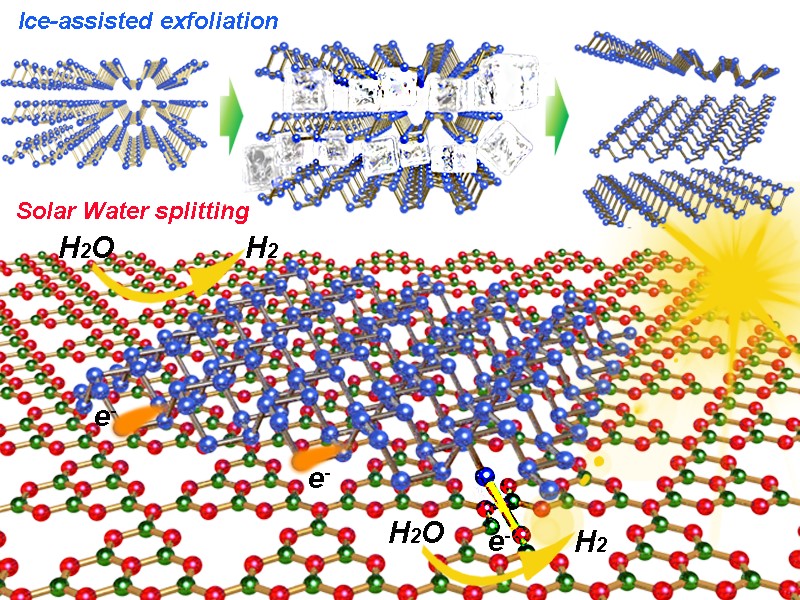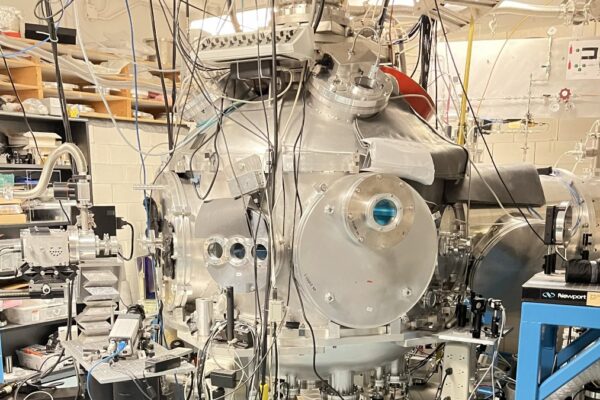- Awards and Distinctions
There is no doubt Qingzhe Zhang likes problem solving and is not afraid of challenges. The young scientist wants to help reduce Canada’s reliance on non-renewable fossil fuels and is hoping his expertise will also provide solutions for the ever-growing energy needs in his homeland, China. Qingzhe Zhang, a PhD student in Professors Dongling Ma’s and Mohamed Chaker’s laboratories at the Institut National de la Recherche Scientifique (INRS), has been awarded the Relève étoile Louis-Berlinguet in January 2020 from the Fonds de recherche du Québec — Nature et technologies (FRQNT).
“I am very excited about being awarded the Relève étoile Louis-Berlinguet and the recognition that brings here in Quebec. It will definitely encourage me to pursue my research and be helpful to my career,’’
states Qingzhe Zhang, who received this award, along with a $1000 grant, for a study he conducted and published in the journal Advanced Functional Materials.déclare Qingzhe Zhang, qui a aussi reçu une bourse de 1 000 $, pour une étude qu’il a menée et publiée dans la revue Advanced Functional Materials.

Most of the energy consumed in Canada comes from non-renewable fossil fuels such as refined petroleum products, natural gas or coal. This in turn has led to massive greenhouse gas emissions, environmental pollution and a growing energy crisis.
“To tackle these issues, we need to find some new energy sources: solar, wind or water. So, I started to look into solar!’’ says Qingzhe Zhang who has been working on the development of efficient and cost-effective photocatalysts, which are able to convert solar energy into hydrogen, a clean zero-emission fuel, via solar water splitting.
The photocatalyst synthesized in his work is based on a metal-free material, few-layer black phosphorus, which has been showing great promise in different applications, including photocatalysis, due to its unique optoelectronic properties. However, it suffers from two major problems, non-effective production and poor chemical stability.

But Qingzhe Zhang was ready to tackle that challenge!
Under the guidance of his supervisors, he developed an innovative, “organic ice”-assisted exfoliation method, which leads to the high-yield fabrication of few-layer black phosphorus with largely reduced energy inputs and processing time. To stabilize black phosphorus, a 2D-on-2D strategy, ie. stacking 2D black phosphorus on 2D carbon nitride nanosheets, was adopted. The method exhibits high stability and photocatalytic activity in water splitting. This work opens a new path for a simple and scalable preparation, as well as stabilization of 2D black phosphorus. They applied for an international patent and are now looking for funding to increase production of this material.
“I am very pleased that Qingzhe, a brilliant and very hard-working student did innovative work in this highly exploratory research and largely contributed to the advance of this important area. I am very proud of him,” says Professor Ma, who is the supervisor of Qingzhe Zhang. “Great challenges need to be addressed before black phosphorus can really become ‘the next big thing’. We have to face them; the project is a tough one.”
“I think this could bring significant environmental and economic benefit to society,” says Qingzhe Zhang whose work promises a bright future for generating 2D materials and renewable energy.
Qingzhe Zhang is also the recipient of a PhD degree scholarship from the China Scholarship Council (CSC) and a Doctoral Research Award from FRQNT.



